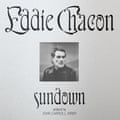It was hard not to notice a tone of amazement about the glowing reviews of Eddie Chacon’s debut solo album, Pleasure, Joy and Happiness. Whatever musical highlights people expected 2020 to bring, a warped soul album by a 56-year-old singer, working with a producer who had previously collaborated with Harry Styles, Solange and Frank Ocean, wasn’t among them. Nor was a comeback by one half of Charles & Eddie, previously filed away alongside Tasmin Archer and Tony Di Bart in a drawer marked early 90s one-hit wonders. No matter that Charles & Eddie had been a more substantial proposition than most of said drawer’s other denizens, as anyone who listened to the charming retro-soul of their 1992 album Duophonic would tell you.
Their debut single Would I Lie to You? was the kind of hit that achieves what you might call obliterating ubiquity: a global smash that succeeded in overshadowing everything else its authors did. Under the circumstances, you couldn’t blame Chacon for walking away, which he eventually did, becoming a photographer and creative director after his erstwhile partner Charles Pettigrew’s death from cancer in 2001. And yet, nearly 30 years after Chacon’s solitary hit, and apparently out of nowhere, here was Pleasure, Joy and Happiness, an understated, left-field triumph, Chacon’s plaintive but emollient voice drifting over collaborator John Carroll Kirby’s gauzy, off-beam synths, samples and electric piano, singing songs that seemed to speak of hard-won experience: Trouble, Hurt, My Mind Is Out of Its Mind.
The question that haunts Sundown is whether the unexpected success of Pleasure Joy and Happiness can be replicated: a sense of anticipation attends its release that clearly wasn’t there before its author’s status was upgraded from one-hit wonder to low-key R&B legend. The answer turns out to be a qualified yes: it replicates its predecessor’s success precisely because it doesn’t try to replicate it, taking a noticeably different route to invoking a mood of hazy calm. The sound has shifted. The drum machines have largely been replaced – or at least augmented – by live percussion; there is brass and woodwind alongside the samples and electronics; it feels jazzier.
On Far Away and Haunted Memories, Chacon sings over muffled clusters and runs of electric piano notes, like a particularly inconspicuous improvised solo that runs throughout the track. The sound of Same Old Song exists on the cusp of pillow-soft early 70s soul and the era’s spiritual jazz. Chacon has mentioned Pharoah Sanders as an influence on the album, although the Lonnie Liston Smith of Astral Traveling might be a more obvious comparison – and its electronic washes and drones stop it shifting into the realm of homage or pastiche. And with its spiralling synth solo and 80s groove, you could append the descriptor “jazz funk” to single Holy Hell without anyone getting too upset, while noting that it is jazz funk of a distinctly warped cast.
The tone of the songs has shifted, too. Although a vein of melancholy still runs through the album – “I’ve been thinking too much,” it opens, “I’ve been barely hanging on” – it’s more obviously tempered by optimism, albeit optimism of an ambiguous variety. “We’ve got each other and that’s a start,” offers Holy Hell’s equivocal assessment of a relationship. “We can keep on shining or we can stop ahead of time.” Meanwhile, The Morning Sun’s component parts seem to pull towards slightly different ends: the blissed-out lyrics and breezy sax at odds with the slightly discordant, faintly ominous synth weirdness that’s going on underneath them.
after newsletter promotion
Tightly written melodies – as on Holy Hell or Step by Step’s appealingly rough-hewn take on a vintage slow jam – vie for space with more abstract tracks. Haunted Memories feels as if you are eavesdropping on a jam session at the precise moment when a song starts to emerge through the mist. The title track moves in the opposite direction, gradually, joyously unravelling. Regardless of the setting, Chacon’s voice sounds fantastic – his falsetto on Comes and Goes is particularly gorgeous – and the effect is the same, potent and affecting: it’s an album that pulls the listener in close and envelops them in its rich, heady world for its entire duration.
When Pleasure, Joy and Happiness was released, Chacon talked about it as a culmination, half an hour of music into which he’d poured everything he had: “a perfect representation of who I am”. It made you wonder if it was a one-off, a curio unlikely to be followed up. Soothing, moving, occasionally disquieting and utterly immersive, Sundown suggests its predecessor was something else entirely: merely the first step of an entirely unlikely and entirely delightful career renaissance.
This week Alexis listened to
Angel Olsen – Nothing’s Free
Arguably the best thing the US singer-songwriter has released to date: an utterly beautiful song, its organ-and-sax-driven climax haunted by the ghost of southern soul.

